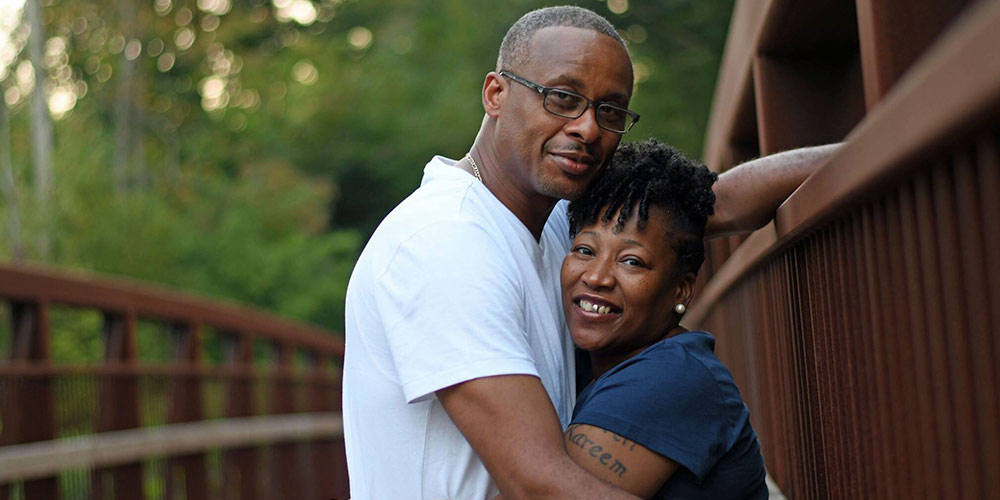Each Wednesday for the last couple of weeks we have been exploring barriers to intimacy written by the late Carrie Oliver, who was the beloved wife of iMOM Specialist Gary Oliver. Today, we take a look at part 3.
There is a relatively new field of study called emotional intelligence. Research is beginning to demonstrate that emotional intelligence – our ability to understand our emotions, express them, and understand emotions in others – may be a greater predictor of whether we will be successful in life than our IQ. Empathy is one of the most important and valuable relationship skills in the study of emotional intelligence. Steven Stosny and Pat Love, authors of How to Improve Your Marriage Without Talking About It, actually say that developing the skill of seeing the world through your partner’s eyes, while holding on to your own perspective, may be the single most important skill in intimate relationships.
Empathy is the ability to feel some of what our spouse is feeling as they look at their world. It is not hard to imagine that if we cannot see things just a little from each other’s perspective then we will not be able to know each other.
Intimacy requires that we know each other more deeply with time.
Both men and women struggle with this skill. One might think women are better at it, and perhaps they are. But most of the husbands I work with do not feel that their wives see their world through their eyes. They see their wives as having compassion for their kids, for their friends, and for animals, but when it comes to his heart, the wife goes someplace else. Usually, she goes to how he has hurt her or does not understand her. She is assuming the worst. She gets critical and then he gets defensive, and off the couple goes, never experiencing the very thing they long for.
Look at the world through your spouse’s eyes.
They both are saying, “Just know me. Please look through my eyes for just a few moments and experience my world: It gets hard sometimes. It is hard worrying about whether I will be able to raise these children to be responsible adults; it is hard going to work each day and dealing with the people there, and I want you to know that.” For Gary and me, it is hard walking the cancer journeys we have each walked, and we cannot assume that each person’s journey is the same, because it’s not.
In the movie, The Story of Us, the viewer just knows that the characters played by Bruce Willis and Michelle Pfeiffer are going to get a divorce. They fight and struggle and work hard at hurting each other, but they do not have a clue as to how to see the world from each other’s eyes until the very end of the movie. They begin to wander over to the other set of eyes before them and risk looking from behind them and feeling the hurt in the heart of their spouse, perhaps for the first time in years. It is at this point that they decide not to divorce, that they have built way too much history with each other, and that they might possibly be able to change the negative parts of the history to positive and build the intimacy with each other that they crave.
Lead your heart
In the movie, Michelle’s character is structured, detailed, organized; and Bruce’s character is playful, spontaneous, unstructured. She feels very annoyed with him most of the time in the marriage as if his personality is communicating to her that she is not important by not upholding her rules around the house, being willing to get things fixed, and following through on things she has asked him to do. He feels she has no ability to play with him, to enjoy being together, to laugh and be silly. In the movie, they are going to tell their children after they pick them up from camp that they are getting a divorce. Bruce is driving and she notices once again that the gas tank is close to empty and the washer fluid in the car has dried up, excellent examples of his lack of follow-through. More ways that he says, “I don’t care about you.” She almost starts to criticize him for his behavior when she has a look of “aha” on her face, and she chooses to not address the low gas tank and wiper fluid. Instead, she says something connecting to him like “How are you doing right now?” She gets it for the first time that her way is not the only way of viewing the world but that her husband views it very different and in that difference he still has value. Her heart begins to turn.
Action for today
Empathy is a natural gift for some people. For others, like me, it takes practice. There is no time like now to begin. Today, when your spouse or child comes home, look at them, greet them, and try to read their mood. Hug them and ask about their day. And then… listen. Don’t react, don’t lecture, don’t try to fix the situation. Just try to understand what they are feeling. Imagine what you would feel if you were them – not what you would do – what you would feel. Remember from last week’s intimacy barrier that they are different than you and may want to approach the situation differently. That’s OK, for today, just empathize.
Tell us! What is the hardest part about looking at life from someone else’s perspective?
Taken with permission from Carrie and Gary Oliver’s book, Mad About Us: Moving from Anger to Intimacy with Your Spouse.
Dr. Gary Oliver has over 40 years experience in individual, premarital, marital and family counseling and for the past 20 years he has had an extensive nationwide teaching ministry.










